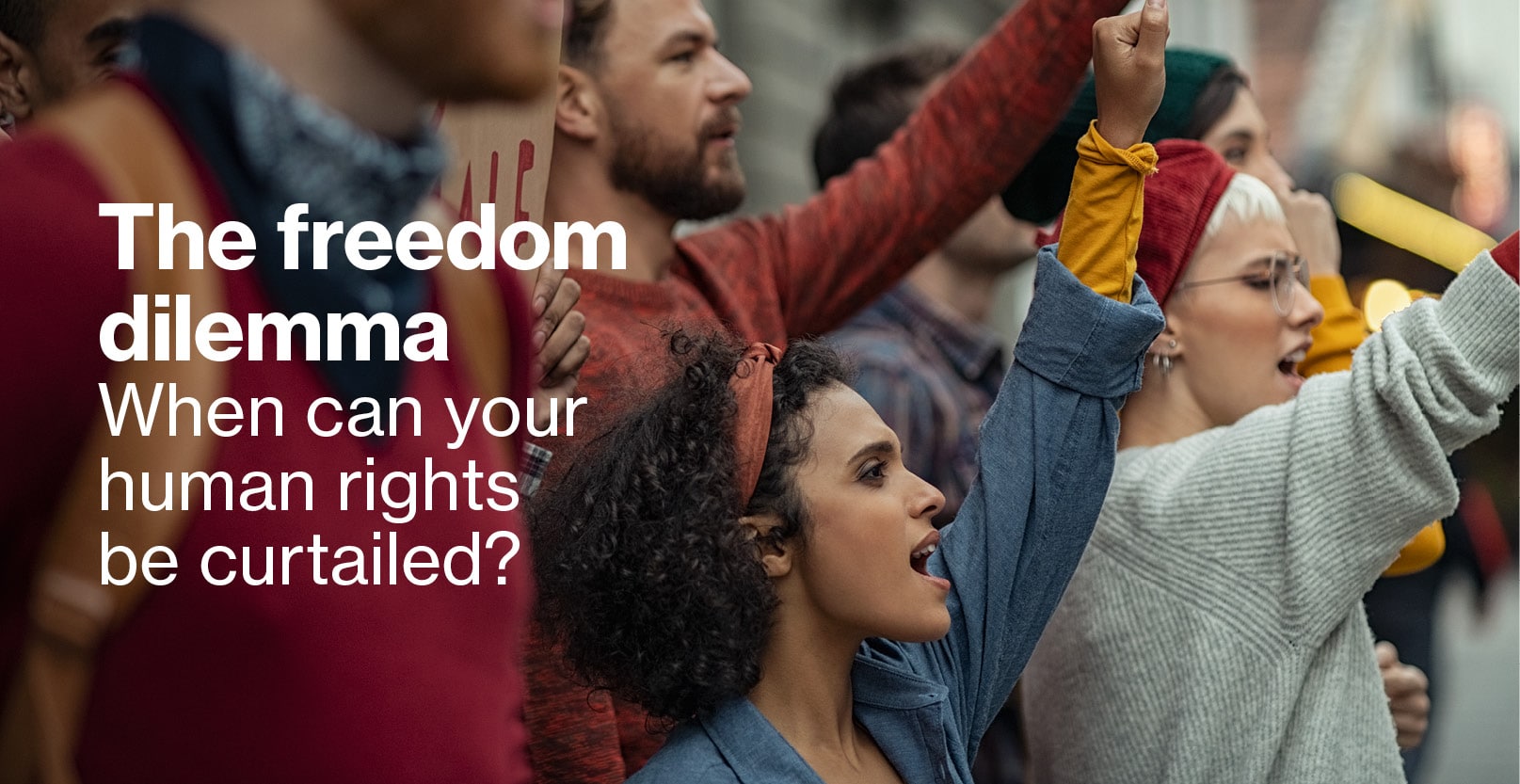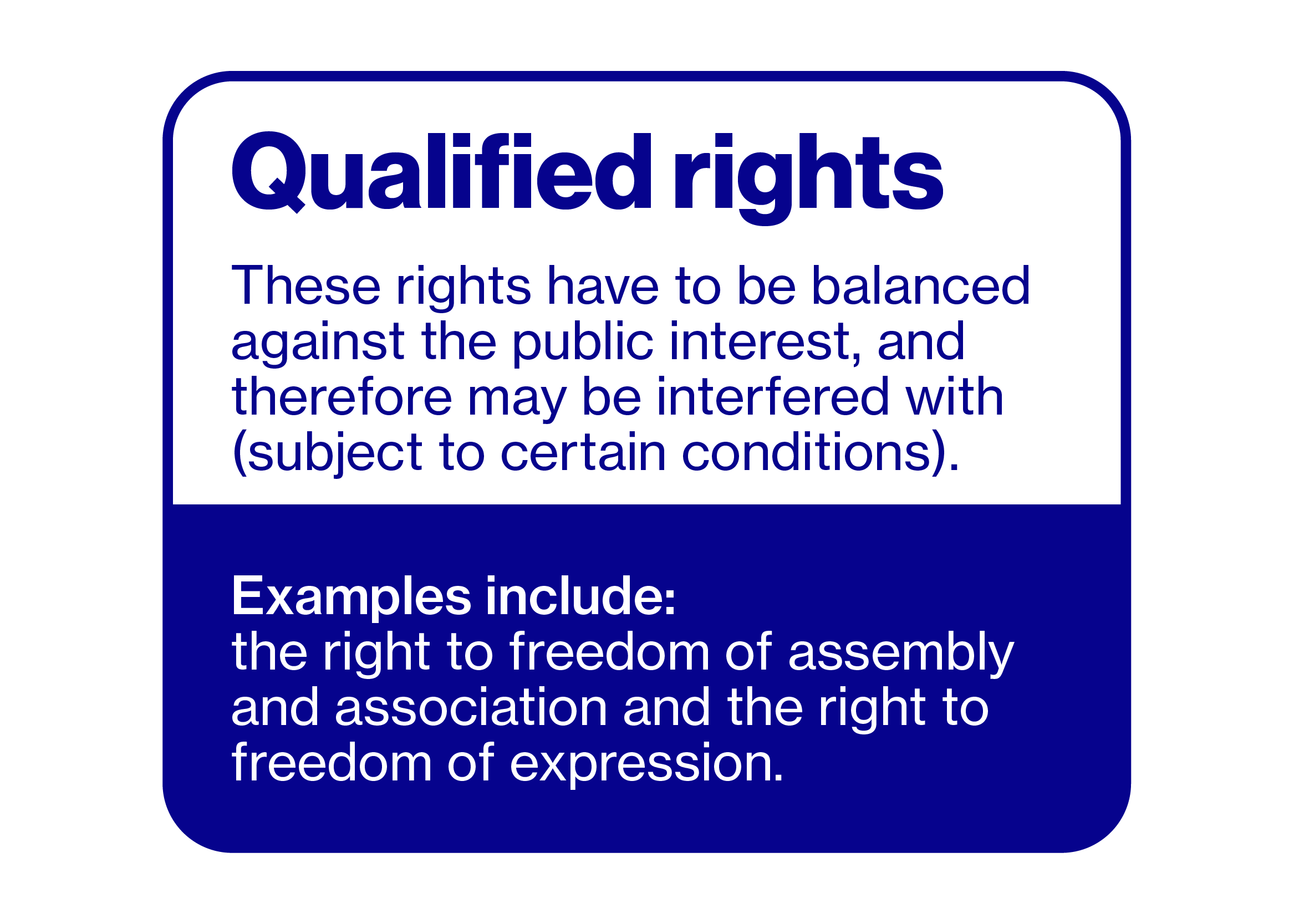
We’re all aware that there are certain fundamental rights and freedoms that are universal in that they apply to every living person, no matter who or where they are. However, there are some instances in which human rights can be restricted. Find out more about this delicate balance.
As Insulate Britain resumes their roadblock campaign after a brief pause, this week we take time to consider the delicate balance that exists between defending human rights (including, in this instance, the right to freedom of assembly, in order to protest), and the need to protect wider society and maintain public safety.
First off, it is important to note that the rights preserved under the European Convention on Human Rights (ECHR), as set out in the Human Rights Act 1998, can be broadly divided into three groups:



When we talk about curtailing human rights, we are therefore generally referring to qualified rights. In the case of Insulate Britain’s campaign to protest through the organised blocking of main roads – including the M25, A1, and the M11 – the UK government sought an injunction, which had the effect of making it illegal for the group to protest across England’s “entire strategic road network”.
The 251-page annexe to the injunction, which is published on the National Highways website and specifies every road from which the group is banned, in effect limits the freedoms and rights of Insulate Britain members on the grounds that this will help protect the safety of the road network and of its users.
Whilst this particular example may be somewhat polarising, other examples appear more clear cut. For example, it is commonly accepted that the right to liberty should be curtailed in instances where someone has committed a crime and as a result is sentenced to a term in prison.
Another recent example where there is a large amount of public support for restriction of freedom of expression specifically takes the form of government’s draft legislation for an Online Safety Bill. The bill focuses on how to protect children and young people in particular from a range of risks, such as; grooming, revenge porn, hate speech, images of child abuse, and posts relating to suicide and eating disorders. The bill is also gaining support within the political sphere, following the murder of Conservative MP Sir David Amess this year, as well as the murder of Labour MP Jo Cox in 2016. It is hoped that the increased restriction on hateful online conduct will help prevent escalation of this behaviour in the future.
Therefore, it may seem that the odds are stacked in favour of protecting public interest over the freedoms of the individual. However, the interference – that is the limitations placed on individuals by the state – must be proportionate. This ensures that the decision to limit a right is not taken lightly, and that the direct impact upon wider society must be significant.
You can learn more about human rights as part of the below courses:
- Level 4 Diploma in Conveyancing/Probate Law and Practice – Unit: English Legal System
- CILEx Level 3 – Unit: Introduction to Law and Practice
- SQE1 Prep – Unit: The Legal System
Sources
The Human Rights Act | Equality and Human Rights Commission (equalityhumanrights.com)
Convention rights—structure of qualified rights | Legal Guidance | LexisNexis
Human Rights Act | Amnesty International UK
https://www.bbc.co.uk/news/uk-politics-58958244

